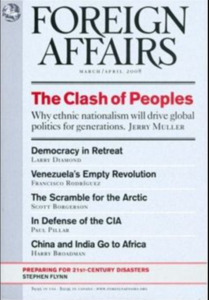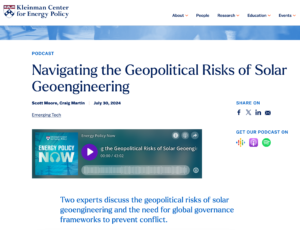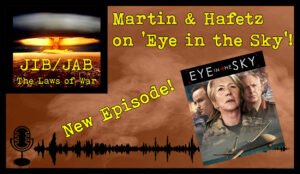
 My colleague Scott Moore and I published an essay in Foreign Affairs that summarized some of the arguments that we make in our forthcoming law review article in the Harvard International Law Journal. The essay (with a title we did not love) is “The Battle Over Blocking the Sun: Why the World Needs Rules for Solar Geoengineering,” Foreign Affairs, Aug. 14, 2024. The argument is captured in the abstract to our much longer law review article, “Geoengineering Wars and Atmospheric Governance,” Harvard International Law Journal (forthcoming, 2025), which is here:
My colleague Scott Moore and I published an essay in Foreign Affairs that summarized some of the arguments that we make in our forthcoming law review article in the Harvard International Law Journal. The essay (with a title we did not love) is “The Battle Over Blocking the Sun: Why the World Needs Rules for Solar Geoengineering,” Foreign Affairs, Aug. 14, 2024. The argument is captured in the abstract to our much longer law review article, “Geoengineering Wars and Atmospheric Governance,” Harvard International Law Journal (forthcoming, 2025), which is here:
The increasingly harsh and unevenly distributed heat-related harms caused by climate change, together with the frustration over the collective inability to respond to the crisis, are likely to make unilateral geoengineering efforts increasingly attractive. Stratospheric aerosol injection (SAI) is a form of solar radiation modification that is effective, technically feasible, and within the financial means of many states and even non-state actors. Yet there are virtually no global governance structures in place to specifically regulate such activity, and existing international law would provide only weak constraints on unilateral SAI efforts. These features create incentives for unilateral action in what is known as “free driver” problem —few constraints on unilateral action that has low direct cost combined with immediate direct individual benefit and widely distributed risks and indirect costs.
There would be significant collateral environmental and climatic harms associated with SAI. That, coupled with the high risk of unilateral action, is reason enough for both caution and stronger governance. But another risk posed by any unilateral SAI effort—one that is underappreciated and under-theorized—is that of armed conflict. We explore how and why states would likely perceive the potential risks associated with unilateral SAI effort as constituting a threat to national security, and in the absence of adequate legal and institutional mechanisms to constrain such unilateral action, might well contemplate the use of force to defend against the perceived threat. The article explores and explains how and why the jus ad bellum regime is unlikely to prevent states from engaging in unauthorized use of force against unilateral SAI actors.



